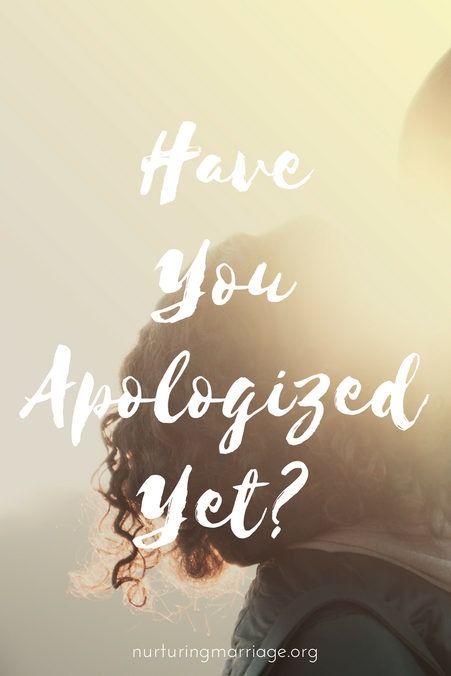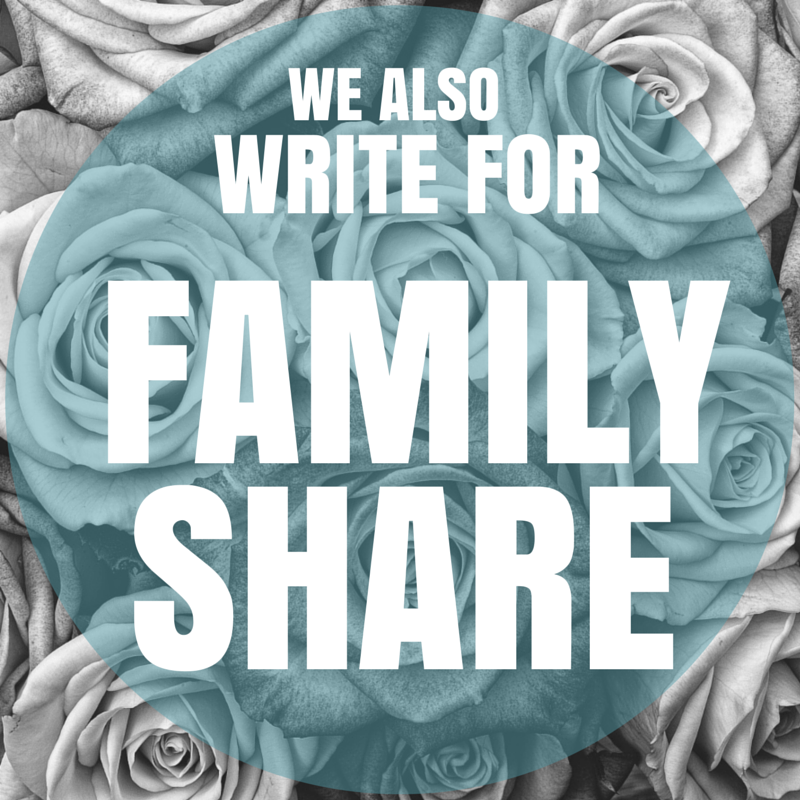|
Written by Crystal Bradshaw, LPC, NCC, Gottman 7 Principles Trainer www.SynergyCounselingInnovations.com Apologies are healing. They are a way of choosing a relationship over being right. They are a function of self-respect and self-worth. When you apologize you are saying: "You matter to me and our relationship matters to me." But when apologies are absent, or not heartfelt, it can communicate a message you don't intend to send and compromise the relationship. So, if apologizes are so good for relationships why is it so hard for people to apologize? Sometimes people struggle with apologizing because they have so much shame. Sometimes people don't apologize because the hurt partner has made it very difficult to apologize. When people strike back after being hurt, they make it more unlikely that they will get an apology. Apologies are uncomfortable because they are connected to accountability, defensiveness, and responsibility. For someone to be responsible and accountable for their words and actions, it puts people in a position of seeing themselves unfavorably. People want to view themselves in a positive way, and apologies highlight that you've done something incongruent with your self-image of being a "good person." Apologies force people to see how they have hurt someone, and that can be difficult for many to acknowledge. People can be reluctant to apologize out of fear - fear of how the apology will be received, which is something beyond our control. It's a very vulnerable experience. There is a fear that our apology won't be accepted, that it might lead to more fear and criticism (which is very common), that it will be used against us, that we will be perceived as weak, and that we are losing something by apologizing. According to clinical psychologist Dr. Harriet Lerner, Ph.D., when we apologize, we are giving 3 gifts 3 Gifts of an Apology 1. We are giving a gift to the person we have hurt. An apology can release the person we have hurt from obsessing over what we have done. When someone receives an apology, it can sooth and calm any anger or resentment they may be carrying. It frees them of ruminating thoughts like: "How could they do that?" or "How could they say that and not see how....?" Receiving an apology can help someone let go of blame, anger, and resentment, all which are toxic to a relationship. In this way an apology is a gift; it helps the person who has been hurt feel safe in the relationship again, and validates their sense of reality as well as their experience. As a gift, an apology:
2. We are giving a gift to ourselves. When we master the art of apology, our resilience grows as does our integrity, maturity, and overall happiness. When we apologize to someone for something we have done, it forces us to hear how badly we hurt someone. When we meet someone who we have hurt with our own vulnerability and sorrow, we will come out feeling more brave and having more self-respect for having the courage to do it. No matter how our apology is received, if we stand firm behind our apology we are gifting ourselves compassion. 3. We are giving a gift to our relationship. Relationships need to be able to heal after hurt and disconnection. When we mess up, we have to be able to own that so the relationship isn't weaker for it. A strong relationship and good intimacy is built upon people's ability to repair after hurt. Bad Apologies A bad apology can be damaging to a relationship. If someone doesn't apologize for something, but they change their behavior in order to not repeat the hurt, then the relationship has a good chance of bouncing back from that hurt. However, if someone apologizes but continues with the hurtful behavior, then things are not good. The apology isn't meaningful because it isn't backed with changed behavior; it isn't followed by intentional effort to do differently and to avoid repeating the hurt. An apology without changed behavior is a bad apology. The message being sent is: you, your feelings, your experience, our relationship, doesn't matter. The negative consequence to a bad apology is that the relationship will suffer and the individuals will grow distant. Don't say "I'm sorry" and then not back it up with changed behavior. Good Apologies A good apology has 3 things -
In a good apology there is accountability with less rationalization, minimizing, and denial. Before you apologize, stop and ask yourself: What is this going to feel like to the person I'm speaking to? What's the impact going to be on them? A good apology also has empathy for the person you are speaking to. Empathy is a way to validate someone's experience by expressing an understanding of what it must be like for them. Empathy has the power to calm someone down because your are conveying to them their feelings make sense to you. A good apology will also contain an element of vulnerability. There is vulnerability in an apology because you are opening yourself up to the possibility of being confronted, being emotionally attacked or blamed, or being criticized for what you have done. Yet, you apologize despite this. How to receive an apology Hurting and overcoming hurt is part of any relationship. Often, when people receive an apology they respond with: "It's ok." or "Don't worry about it." This response minimizes the hurt and seeks to comfort the one who did the hurting. Instead of rescuing the one doing the apologizing, acknowledge the apology by saying something like:
By responding to an apology in this way, you are communicating that yes, the apology was needed and that you accept it. It's important to understand that giving an apology can be scary. Apologies have inherent vulnerability in them, which is why people avoid and struggle with giving and receiving them. We can feel small, fragile, exposed, and even fear losing respect in the presence of an apology. They force us to acknowledge an unsavory aspect of ourselves that might make us feel shameful and guilty. It makes sense that people want to avoid apologies. We fear how our apology might be received, but that should not prevent us from apologizing for hurting someone else. Hurting and overcoming hurt is part of being in a relationship. We need to give ourselves, and those in our lives, permission to be human, to make mistakes, and to make repairs. Though apologies can be scary, we stand to gain more respect and a stronger relationship when we open ourselves up to giving, and receiving, meaningful apologies from the heart. You may also enjoy What is Your Apology Language and 56 Secrets to a Happy Marriage
18 Comments
Bella George
12/1/2020 07:09:52 am
HOW I GOT MY HUSBAND BACK WITH THE HELP OF DR JUMBA CONTACT ON WHATSAPP NUMBER +1 (908) 517 4108
Reply
Clara James
2/11/2024 07:27:17 pm
REAL LOVE SPELL CASTER PRIEST WISDOM THAT HELP ME SAVE MY RELATIONSHIP.TEXT OR ADD HIM UP ON WHATSAPP/Telegram: +2348124644470
Reply
Laura Davy
4/19/2021 11:08:10 pm
LOVE SPELL CASTER (DR. JUMBA) THAT HELPED ME BRING BACK MY DIVORCE HUSBAND CONTACT HIM NOW FOR ANY KIND OF HELP
Reply
Ashly Jimi
5/15/2021 10:42:22 am
I will forever be indebted to the great Doctor Jumba for fixing my broken marriage after my husband left me for his mistress for 6 months. I never believed in spells until my friend introduced me to him. At first, I was skeptical about him because I heard a lot about false spell casters but I put my doubts behind me for I was desperate to get my husband back and I did according to what he instructed me to do. Now my husband is back just within 48 hours of contacting him. I'm living happily with my husband again after 6 months of divorce and I will not rest till he's known all over the world. He also specialize in money spells, lottery spells, sickness spells E.T.C. Get connected with Doctor Jumba now, his email is wiccalovespelltools@gmail.com or WhatsApp on +19085174108 Or His Website: https://drjumbaspellhome.wordpress.com/
Reply
jasmine robert
7/3/2021 07:01:40 am
Thank you Dr Jumba for your genuine spells. This is really incredible, and I have never experienced anything like this in my life. Before I came in contact with Dr Jumba, I have tried every possible means that I could to get my husband back, but I actually came to realize that nothing was working out for me, and my husband had developed a lot of hatred for me.. I thought there was no hope of reuniting with my husband until my friend told me about dr jumba and she gave me dr jumba website i googled it and read good reviews about Dr Jumba work , I decided to give it a try and I did everything that he instructed me and I trusted in him and followed his instructions just as he had guaranteed me in 24 hours, and that was exactly when my husband called me and ask for forgiveness that he his on his way to my house .. We are good more than ever. Everything looks perfect and so natural! Thank you so much for your authentic and indisputable spells. Thank you Dr Jumba for your help. If you need help in your marriage or broken relationship, contact Dr Jumba right now for urgent help Email: wiccalovespelltools@gmail.com OR wiccalovelovespelltools@yahoo.com View his website https://drjumbaspellhome.wordpress.com/ Call/WhatsApp him: +19085174108
Reply
Yanda Carter
1/15/2022 02:18:42 pm
I’m so excited my broken Marriage has been restored. “We recently made up, even though it was difficult. It’s been more than a month now, and everything feels like it’s returned to normal. He has began to treat me better, and it’s been a healing process for both of us. The nightmare that had lasted for almost 2 years before we broke up is finally over. It’s like we fell in love all over again! We’ve both put the past behind us, and are trying to move forward – and for the first time in a long time, the future looks a lot brighter. I can’t express in words how grateful I am Dr Jumba! It’s like we’ve finally rediscovered those things about each other that made us fall in love in the first place. All of the worrying and stress has simply vanished. Thank you Dr Jumba for saving my broken Marriage and brought my husband back to me!”. Me and my husband are living together happily again.. All thanks to Dr Jumba. If you have any problem contact Dr Jumba now and i guarantee you that he will help you contact him through : wiccalovespelltools@gmail.com or +19085174108
Reply
SCOTT WYCOFF
6/13/2022 04:57:13 pm
Hi, did you know there are spells to win love back from an ex. I have done it. I love reading about relationships and how to make them work, how to better the relationship, and how to keep the spark alive, even how to talk to them a certain way to get them to think a different way about the situation and you. If you need advice or want to win your ex back, try this: emutemple@gmail.com copy and message on the following ( emutemple@gmail.com ) It will change your mentality and get you what you want. Facebook page Https://web.facebook.com/Emu-Temple- 104891335203341
Reply
oliviastephen02
9/12/2023 02:33:42 am
Reply
oliviastephen02
9/12/2023 02:45:05 am
Happiness comes when you have peace of mind. My husband left me for a younger woman and I was devastated. It was as if she had him under an evil spell, Paul turned against me overnight without any warning. It happened last year, I was desperate so I used every single spell casting website that I could find with no results. A friend sent me the link to Dr Excellent site and I contacted him. He started working with me on June. As a result from all of his wonderful work, my man and I are back together. I'm so happy and privileged to have such a great person like you on my side. Thank you Dr Excellent! Here his contact. WhatsApp him at: +2348084273514 "Or email him at: Excellentspellcaster@gmail.com ,Read about him here:https://drexcellentspellcaster.godaddysites.com
Reply
Marie Bailey
10/24/2023 03:15:58 am
Review and contact the most honest and powerful spell caster called Dr Isikolo via website (https://isikolotemple.com)
Reply
Nicolette Elliot
11/2/2023 07:22:27 am
Hi everyone. My name is Nicolette Elliot I am here to thank great Dr Isikolo for fixing my marital problems. My marriage crashed due to unending problems and difficulties I had with my husband. He left without looking back and I was alone for so many months. His family intervened and still nothing changed. I was wrecked emotionally and lost hope in finding love again because he was everything in a man I ever wanted. Just like so many people, I got to know about DR ISIKOLO when I started searching for help. We discussed my problems at length and he assured me of getting the solution I needed. I had no choice than to comply with his procedures and he didn't delay anything. He did a love reunion bond for me and my husband and the love and happiness we shared was restored and he reached me exactly after 48 hours as DR ISIKOLO promised. He is indeed a wonderful helper and he is trustworthy. if you have any problems, just text him via WhatsApp +2348133261196 or email him via: isikolosolutionhome@gmail.com or review his website (https://isikolotemple.com)
Reply
joyce
12/10/2023 08:26:53 pm
WHEN LOOKING FOR A TRUSTWORTHY SPELL CASTER TO HELP YOU GET YOUR EX BACK, CONTACT DR UWABOR. HIS Gmail (druwabor59@gmail.com)
Reply
Rachael Mildred
1/22/2024 09:11:55 am
EFFECTIVE LOVE SPELL TO GET EX HUSBAND/BOYFRIEND OR EX WIFE/GIRLFRIEND AND CURE HERPES AND INFERTILITY THAT WORKS WITHIN 24 HOURS.
Reply
Niki nicole
2/9/2024 07:17:25 am
Hello everyone, I’m here to testify of a powerful love spell caster called Dr happy, who helped me stabilize my relationship and solved all the problems that’s been going on in my life. I was confused and devastated when my husband left me and my kids without a word, I needed him back because I love him so much, I told my friend about how he left me. She introduced me to this powerful and reliable spell caster who had helped her in getting her lover back, so I contacted him and he promised that in less than 24 hours he will come back to me. After I did all he asked, to my greatest surprise my husband who had refused to speak with me came to my house and asked for forgiveness for all he had made me go through and now we are living happily together, I will forever be grateful to you Dr happy if you have any relationship problem I will advise you to contact him now for your testimonies. Contact him
Reply
Lyne Azabal
2/12/2024 09:20:43 am
I Need A Hacker To Recover My Lost Investment?.Go To Lost Recovery Masters
Reply
Niki nicole
2/14/2024 12:48:31 am
Hi Guys I’m so excited to share this testimony on how i got my Fiancee back,
Reply
Vera Peter
3/13/2024 01:27:00 pm
i want to share my amazing experience with Dr Jumba my husband was cheating on me and when i found out we had a fight which lead to him filling for a divorce i cried and fell sick when i was searching about love quotes online i saw people talking about him and his great work whose case was similar to mine they left his contact info i contacted him and he told me not to worry that after 24hrs he will cancel the divorce and be back to me after i did everything he asked me to do to my greatest surprise the next day evening it was my husband, he knelt down begging me to accept him back,thank you once again Dr Jumba you are indeed a blessing to me he can also help you contact
Reply
THIS IS HOW YOU CAN RECOVER YOUR LOST CRYPTO? Are you a victim of Investment, BTC, Forex, NFT, Credit card, etc Scam? Do you want to investigate a cheating spouse? Do you desire credit repair (all bureaus)? Contact Hacker Steve (Funds Recovery agent) asap to get started. He specializes in all cases of ethical hacking, cryptocurrency, fake investment schemes, recovery scam, credit repair, stolen account, etc. Stay safe out there!
Reply
Leave a Reply. |
Conflict
|



 RSS Feed
RSS Feed


